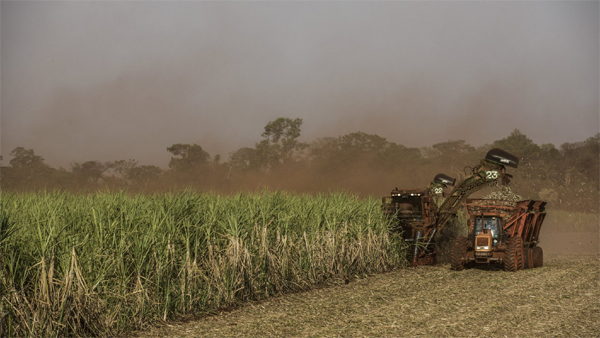
Rachel Gamarski and Tatiana Freitas, Bloomberg News
SAO PAULO
EnergiesNet.com 06 09 2022
Brazil’s government is mulling an increase later this year in the amount of biodiesel blended into trucking fuel to avoid shortages.
Latin America’s largest economy may boost the biodiesel blend to 15% from 10% if stockpiles of diesel remain at low levels during the second half of the year, according to people with direct knowledge of the matter, who asked to not be named because the discussion isn’t public. The increase would be in place for a limited time, one of the people said.
Using more biodiesel would actually increase fuel prices, as biodiesel is more expensive than the petroleum-based fuel. Diesel prices are already at record levels due to tighter global supply amid sanctions on Russia following its invasion of Ukraine. The higher blend would help maintain stockpiles at a time when there’s a higher risk that supply from the US is curbed due to hurricanes in the Gulf of Mexico.
Brazilian President Jair Bolsonaro has been working on proposals to ensure fuel supplies with a minimal impact on prices as the nation struggles amid high inflation as he eyes re-election in October. Blending more biodiesel would require more soybeans to be crushed in Brazil rather than exported, tightening supply and threatening to worsen rampant food inflation.
Fewer Imports
An increase in the blend could reduce diesel imports by five vessels per month out of the typical 20 to 30 ships, according to estimates by Pedro Shinzato, an oil analyst at StoneX.
Industry group Abiove said producers can supply oil for a biodiesel blend of 12% using current stockpiles and exportable surplus. To reach 15% would require Brazilian producers to crush an additional 3 million tons of soybeans, according to a person with knowledge of the matter. That’s on top of the 48 million tons estimated for this year.
Soy-oil prices are trading near all-time-highs in Chicago on tight supply concerns. Demand for soybean oil has been increasing amid lower exports of rivals palm oil, due to protectionism measures, and sunflower oil because of the war in Ukraine. On Wednesday, Brazil’s national supply company Conab cut its estimate for bean exports this year as strong demand for soy products has favored crushing.
The Energy Ministry press officer said that there’s no decision on this matter at the moment. Brazil’s oil regulator, known as ANP, said in a statement that it is monitoring the situation and proposing necessary measures to guarantee the diesel supply, without mention which measures was proposed.
Brazil’s main oil union, known as FUP, warned that diesel prices may reach 10 reais per liter ($7.77 per gallon) during the second half of the year from the current level of about 7 reais, according to a statement published on June 3. The union had also warned that the increase in demand during the agricultural harvest added to the scarcity of supply. Farmers typically use more diesel during the third and fourth quarters of the year.
bloomberg.com 06 08 2022







